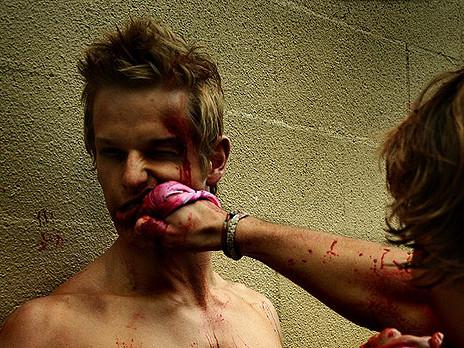ACTA brawl stymies draft text

update Potential signatories to the Anti-Counterfeiting Trade Agreement (ACTA) have come to blows over the release of the latest draft report to emerge from last month's Washington meeting.

(Fight Club image by Polina Sergeeva, CC2.0)
Potential signatories to the agreement, including Australia, New Zealand, the United States and European nations, had previously released a draft text of the agreement in April following a spate of demands from privacy groups and European Union (EU) MPs to increase the level of transparency of ACTA discussions.
However, the European Union was allegedly blocked from publishing the draft text from the latest August meeting by US signatories, according to European publication EurActive.
It reported that this block infuriated EU MPs who demanded to see the negotiation document before they are required to vote on ACTA later this year. Swedish Pirate Party member Christian Engstrom is reported to have walked out of an ACTA debrief last Wednesday in protest of the censorship.
Engstrom noted on his blog last week that the ACTA negotiating text remains secret.
The Department of Foreign Affairs and Trade (DFAT) confirmed to ZDNet Australia that potential signatories failed to reach a consensus about the release of the negotiating text.
"No consensus was reached in Washington about the release of the negotiating text for ACTA," the department said in a written statement.
University of Queensland senior law lecturer Kimberlee Weatherall said that the more recent statement released after the August meeting contained "nothing new" and criticised the secrecy of the negotiations.
"[The ACTA statement] continues to trot out the same old assurances about not impacting on civil liberties, or the right to health, or access to medicines, but, since they've again not released a text, we can't tell whether all the many concerns raised in the Washington Communiqué have been answered," Weatherall told ZDNet Australia.
Negotiators are gunning for a September resolution, citing only general progress in negotiations and staying mum on sticking points.
"[The September finish] of course is interesting from an Australian perspective because we're in caretaker mode. DFAT ought not to be concluding any such agreement at this point, given we may well have a change of government," Weatherall said.
Official statements and leaked documents (PDF) have indicated that some of the most radical proposals in the agreement, such as the three strikes rule, would see repeat copyright infringers banned from using the internet, may have been dropped.
Update at 3:27pm, 6 September 2010: changed signatories to potential signatories and entered the correct definition for ACTA.